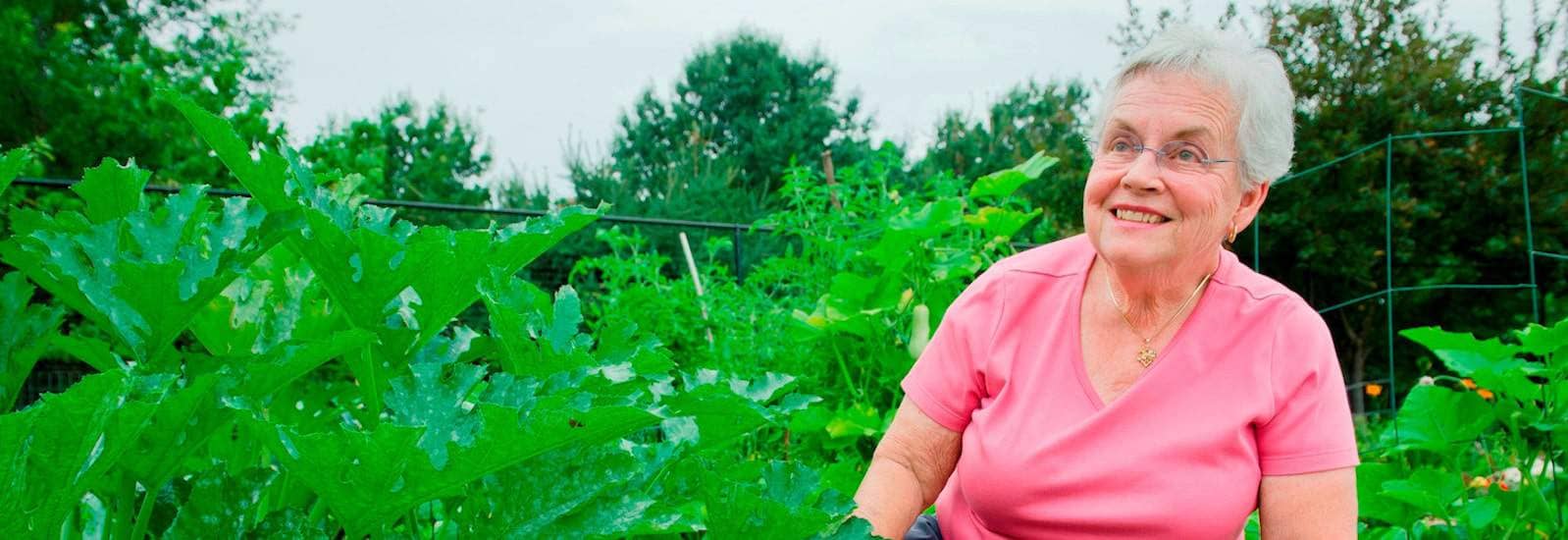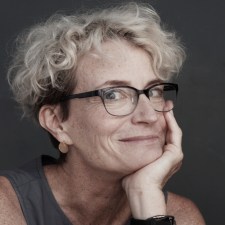Exploring the Significance of Years
 Exploring the Significance of Years with Ashton Applewhite
Exploring the Significance of Years with Ashton Applewhite
Ashton Applewhite, ageism activist and TED2017 speaker, shares her thoughts in this Q&A with Asbury. “[T]he cartilage goes away, but our experiences remain accessible to us. I don’t know anyone who would turn back the clock if it meant giving up what they’ve gained along the way.” Read more …
Asbury: As the author of This Chair Rocks: A Manifesto Against Ageism, you encourage people to embrace both sides of the story when it comes to aging: physical decline is real but little else is inevitable, and there’s little discussion of the very real benefits of aging. That’s why Asbury has named its campaign for Older Americans Month “What’s Age Got to Do With It?” We want to get the word out that of course aging doesn’t mean you stop being you. People continue to contribute, whether by working or helping other people or volunteering, or exploring or hiking— you name it. You’re still the same person.
- Ashton: Of course I’m continually surprised by the people who set remarkable examples of physical activity and community engagement as they age. But it’s really important that we acknowledge the full spectrum of aging. This can involve disability and means slowing down for most of us. It’s okay to sit on your porch. When we acknowledge that, we overthrow what geriatrician Bill Thomas calls “the tyranny of still” in his book “Second Wind,” which is the delusion that as long as we’re still working, still dating, still running up the stairs, we can stop the clock—as if that would be a good thing! Why on earth do we stop celebrating the all-important ability to adapt and grow as we move through life? Even by age 30, there are things we can’t do that we used to do. But we can usually continue to do versions of them. When I came to city I biked everywhere. I whizzed along. Now, guess what? I’m not whizzing, but I still love riding my bike. At 64, I’m more confident than I was when I was younger. I have a clearer idea of who I am and want to be in the world. And now I wear a helmet. Everything changes, but we remain ourselves. The writer Anne Lamott puts it in her epigraph to my book, “We contain all the ages we have ever been.” The cartilage goes away, but our experiences remain accessible to us.
Asbury: Do you think we are hardwired to see aging as a negative process? Or do you feel the messages we learn play a greater role in shaping those views?
- Ashton: A young, fit body is beautiful, but that doesn’t mean all other bodies are ugly. We’ve had a lifetime of listening to the media and popular culture telling us how sad it is to be old. Ageism starts so young, at the same time attitudes towards race and gender start to form. Look at children’s books, with their pictures of placid grannies or evil witches, or the cranky old man next door waving his cane. Capitalism equates the value of an individual to their conventional economic productivity, their wage. This reduces the value of both older and younger people in society’s view. (Ageism cuts both ways: it’s any judgement about a person on the basis of age.) And capitalism always needs new markets. If aging is framed as a problem, we can be persuaded to buy stuff to “fix” it, and if it’s framed as a disease, we can be sold stuff to “cure” or “stop” it. Aging isn’t a problem or a disease: it’s a natural, powerful, lifelong process that unites us all.
Asbury: What are the greatest obstacles to aging that older people face in our nation?
- Ashton: The biggest factor to aging well is not how much money you have or how healthy you are, but whether you have a solid social network. It’s also your mindset: what’s between your ears. I tell people to start by looking at your ideas about aging and thinking about where they come from. Look for ways in which you’re ageist instead of for evidence that you’re not, because we can’t challenge bias unless we’re aware of it. Download my free guide to starting a consciousness-raising groups, “Who Me, Ageist?” Start one with your friends. You can find it under Resources on ThisChairRocks.com. Once you see ageism in the culture you see it everywhere, and it’s liberating. It’s not that you’re not doing a good job of getting old. It’s that there are forces that want you to think that the problems you encounter are personal ones. They’re actually widely shared political problems that require collective action. This is why ending ageism will require a broad-based social movement, like the women’s movement. Stereotypes are always a mistake, but especially when it comes to aging, because the longer we live, the more different from one another we become. The older the person, the less their age tells you about them. Yet we tend to think of everyone who lives in a retirement community as the same age—“old”— when they can span four decades. Can you imagine thinking that way about a group of people from age 20 to 60?


 Exploring the Significance of Years with Ashton Applewhite
Exploring the Significance of Years with Ashton Applewhite

